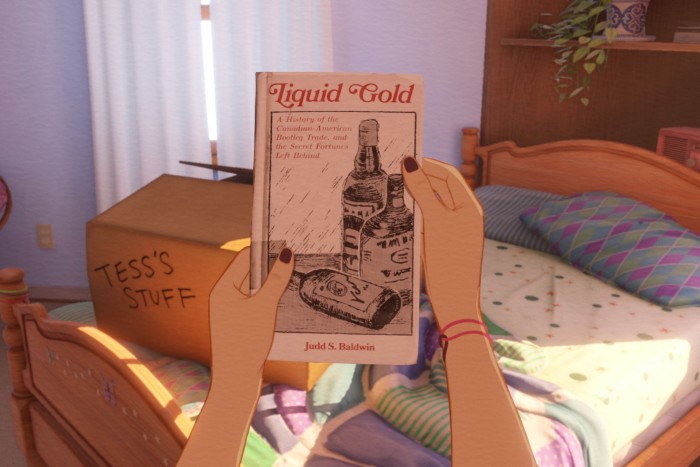Unlock the Editor’s Digest for free
Roula Khalaf, Editor of the FT, selects her favourite stories in this weekly newsletter.
Early in Open Roads, 16-year-old Tess is exchanging texts with her father, who divorced her mother and left the family some time ago. He comes across as affectionate but also feckless: when Tess says they’re struggling for money and asks for help, he dodges the question. At that point you, as Tess, can decide how to end the conversation. Do you opt for “love you” or “talk to you later”?
Your decision has no impact on the narrative; there are no points to score. The moment exists only to implicate you emotionally in Tess’s journey. Open Roads is a walking simulator that prioritises character development over gameplay challenges. This is both its greatest strength and, sometimes, a bit of a drag.
The game opens with Tess packing up her childhood bedroom. Following the death of her grandmother, she and her mother, Opal, have to move out and find somewhere new to live. The discovery of a hidden suitcase in the attic reveals that grandma Helen might have had a secret life. Naturally, Opal and Tess set out on a road trip to learn the truth. It would be a familiar set-up for an indie movie playing at Sundance, less so for a video game. Developers are rarely interested in telling stories on such an intimate human scale. It’s refreshing.
You spend the game as Tess walking round different environments and looking at objects that obliquely tell the story of a family full of secrets. At any point you can press a button charmingly labelled “Hey, mom!” and your mother will appear to discuss your latest discovery. It’s rare to see a mother-daughter relationship at the centre of a game, and Tess and Opal have wonderful chemistry, mostly down to the excellent vocal performances from Kaitlyn Dever (Booksmart, The Last of Us) as Tess and Keri Russell (The Americans), who gives a wry, world-weary performance as Opal. When she visits the summer house of her youth, she remarks: “It’s more weathered than I remember. But I guess I am, too.”

The characters are realised as expressive 2D cartoons set stylishly against 3D environments. In general, the game’s visual presentation is strong, offering a loving time capsule of two periods: the 2003 in which the game is set, with an old Apple computer resembling a pink bubble and flip phones used to communicate in “txt spk”; and other spaces which haven’t been touched since the 1970s, with faded period details that evoke the poignancy of excavating a family’s past.
The developers are smart enough to let these objects tell their own stories. At the very start, when Tess is packing up her room, you can find a scrunched-up document in the bin about how to help a grandparent with dementia. In a nearby drawer is a pamphlet for a funeral. Downstairs is grandma’s pottery room, where her final, unfinished vase sits on the shelf, its wonkiness eloquent of her deteriorating mental state. Exploring each area becomes its own emotional detective work, a masterclass in environmental storytelling.
What the game struggles with is pacing. The beginning is painfully slow, with no narrative hook until almost an hour in. It doesn’t help that your character walks at a glacial pace. The decision to have the animated characters gesticulate but not mouth the words also proves jarring. Ultimately, though, people interested in this genre will forgive the flaws. If you’re willing to invest in it, the game offers a heartfelt climax after only three hours. Even if Open Roads takes its time, at least it doesn’t outstay its welcome.
★★★★☆
Out now on Nintendo Switch, PlayStation 4 and 5, Windows, Xbox One and Xbox Series X/S






